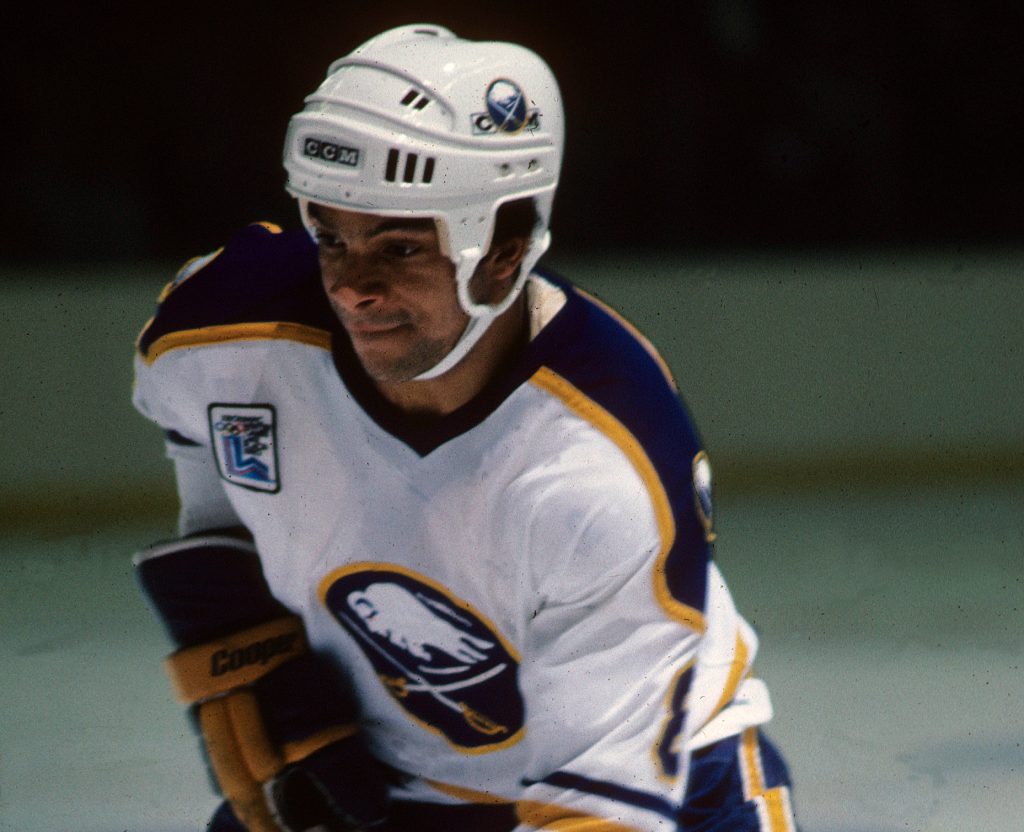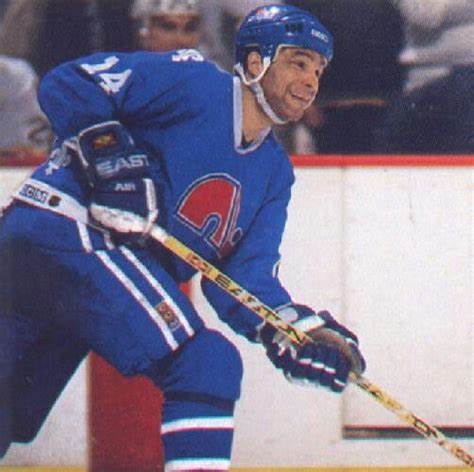#SameHere Celebs
Alliance Profile - Tony Mckegney


Tony Mckegney
13 year NHL Career with 7 Teams, First Black Player to Score 40 Goals
What past life experiences, physical traumas or genetics do you believe have had an effect on your mental health?
I was born in Montreal, Canada, and my biological mother tried to raise me, alone at first. My biological father had been trying to bring my mother and I overseas to either England or Africa…but that proved difficult, so my mother started out raising me on my own. At only eight months old, a nurse saved my life in the hospital from an aggressive case of pneumonia…I’m lucky to be alive from that incident.
At 13 months old, my mother was having trouble making ends meet, and had no choice but to give me up for adoption. I was taken in by a white family in Ontario, Canada. At the time, there literally were only three other black families in all of Sarnia, Ontario…so I really felt like a fish out of water, despite my adopted family being so loving and supportive.
I was close with my neighbors and their kids, and I was probably around three when they pointed out to me – I was likely adopted. I never longed for my biological mother…but that doesn’t mean I didn’t wonder -“Why did someone give me up? Was I not good enough?”
My adopted parents were one of the first in Ontario to build an ice rink in their backyard, and I dove into playing hockey from a young age. We would have families from all over Ontario come to play. In fact, there were 10 future NHL players who’d play on that rink at my parents.
How did the effects on your mental health appear in terms of symptoms?
Retiring at 35 years old was difficult on me. It was such a tough transition – going from the camaraderie of being around folks playing the game even as a young kid, to having 25 guys in the locker room all going for the same goal together for so long, it was a huge change. I didn’t speak to anyone or get professional help at the time.
Then at age 45, 10 years later, I felt my behavior changing – out of control and not in a good way. I was diagnosed with early on-set dementia. That was a challenging diagnosis, but not one that would debilitate me as such a young man. It’s possible it came about from some of the ongoing head trauma from playing.
When and why did you decide to ask for help to get relief?
My girlfriend wasn’t interested in going to therapy with me, as she didn’t want to deal with the “shame” of someone knowing I/we needed help. But I went to the therapist on my own, and quickly became uncomfortable as he knew exactly who I was from my playing days and living in the area…and that made it difficult for me to trust that this would be a confidential environment. I knew I still needed help, but getting it from him was not an option. When you’re an athlete it’s hard to ask for help. At first I thought I could do it on my own – drinking helped numb some of the pain, but I was using it as a crutch.
What methods helped you individually get/feel better?
Although that traditional therapist wasn’t able to help me…I did find many ways to start to cope and even heal, on my own. I practice a lot of self-reflection and think about my own scenarios and how I can handle things better. I watch a lot of movies and read a lot of books about other athletes who have faced challenges like I have, and how they have been able to manage and overcome. Their stories are an inspiration to me. I love being open now and learning from others. A lot of my good friends I’ve met through the sport of hockey have been very supportive and I am able to go to them and open up and ask for help or just an ear to listen, when I need it.
WIth the dementia, I’ve cut back significantly on my alcohol intake, as I have been told by doctors and know that it creates inflammation which does not mix well with what I go through.
I also have anxiety meds that help me as needed, and those have been one of the tools in my tool belt along with much of the above.
A lot of the purpose that I lost after 35 when my playing days ended, I’ve gained back through volunteer work. I provide food and clothing to the homeless once a week along with my friends in the area who are firemen. I’ll also bring other friends with me to show them how this brings purpose as well to their lives. We leave those hour-long sessions feeling great about giving back.
Why did you decide to go public with your story? Who were/are you hoping to help and how?
I find listening to others’ stories is therapeutic. Knowing there are other people out there who feel the same way I do helps me push through. I also find myself more approachable for others and that makes me feel important. I want to help anyone within reach be at peace and know there’s a light at the end of the title. If I’m being honest, working with young athletes is very appealing to me but most importantly leading by example for my son.
How did people react when you went public with your story?
Since this is the first time, and I’m sharing in a group like this, I’m confident they are going to react positively. If you’re willing to be of service to others, you get rewarded. We all face challenges that are difficult. We are STRONGER for opening up about them
Do you have any resources you would like to drive people to?

